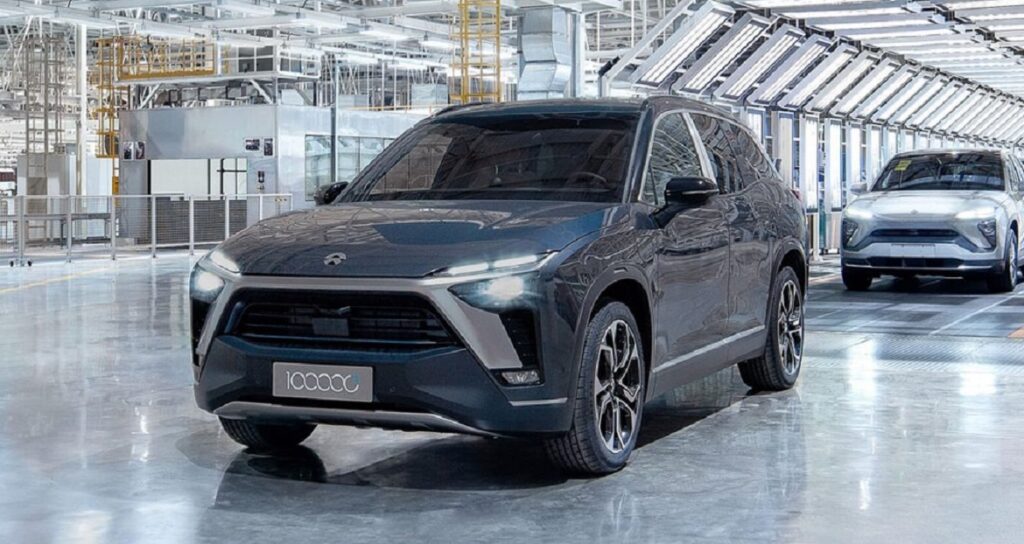The European Commission’s recent decision to impose provisional tariffs on all-electric cars imported from China has sparked significant concern.

Hungarian economy minister Márton Nagy described the measure as “almost unprecedented” and claimed that it causes extreme discrimination. The tariffs, which are set to take effect from July 4th, range from 17.4% to 38.1%, with no clear reasons provided for this differentiation. Among the hardest hit will be Shanghai-based SAIC, owner of the MG brand, which faces an additional tariff of 38.1%. SAIC has strongly opposed the measure, arguing that it violates market economy principles and international trade rules and could have a detrimental impact on the global automobile industry and China-EU economic cooperation.
The investigation into Chinese electric vehicle (EV) companies was unusual because it was not initiated by a complaint from the EU industry, as is typically the case. Instead, the EU launched the probe based on its own concerns about “illegal subsidization” from China and the potential “economic injury to EU BEV producers.” Notably, the investigation targeted only Chinese companies and excluded major other exporters. The China Chamber of Commerce for Import and Export of Machinery and Electronic Products (CCCME), representing several Chinese automakers in the EU probe, highlighted that the investigation demanded sensitive information from Chinese companies, including trade secrets and core technologies like battery formulations.
Ironically, the strongest backlash against the EU’s measures has come from within Europe. German Chancellor Olaf Scholz emphasized the importance of considering the success of European and North American manufacturers in the Chinese market. Statistics from the European Federation for Transport and Environment reveal that out of the 300,000 made-in-China all-electric cars sold in the EU last year, over half were Western brands operating in China, such as Tesla and BMW. Germany, with its deeply integrated automotive industry, stands to be one of the most affected EU members. BMW Chairman Oliver Zipse called the trade restrictions on Chinese car manufacturers “an absurdity,” urging the EU to adopt a “360-degree perspective.” He noted that 20% of all battery electric vehicles sold in Europe last year came from China, with the majority being Western brands, including BMW. Zipse warned that the EU’s approach could be self-destructive.
Mercedes-Benz CEO Ola Källenius went a step further, suggesting that the EU should cut, rather than raise, tariffs on Chinese EVs to encourage European carmakers to improve their products. Källenius emphasized the need for a “level playing field” and the importance of creating “economic win-win situations.” Johan Annell, Partner and General Manager Beijing of ARC Group, an international advisory firm, echoed these sentiments. Annell argued that protective measures cannot truly “protect” the industry in the long term and warned that such actions could reduce competitiveness and lead to job losses in the European automotive sector. Swedish Prime Minister Ulf Kristersson also spoke out against the tariffs, stating that dismantling global trade is not the future for major industrial countries.
Contrary to the EU’s intentions, these punitive measures might fail to constrain Chinese EV manufacturers and could instead drive Chinese investment overseas. Of the approximately 10 million electric vehicles produced in China last year, only about 470,000 were exported to the EU, representing a mere 5%. Despite the looming threat of higher tariffs, registrations of Chinese-made electric cars in Europe rose by 23% from January to April this year compared to the same period last year. Annell suggested that the anticipated tariffs would push Chinese companies to focus on other markets such as South America and the Middle East while still maintaining substantial sales in Europe, albeit with lower margins. He also predicted an acceleration in joint ventures and acquisitions in response to the potential new tariffs.
Indeed, business integration has already begun to accelerate. China’s Leapmotor has started EV production in Poland in collaboration with Stellantis, with sales expected to commence in nine European countries later this year. In April, Chery Automobile signed an agreement with Ebro-EV Motors to establish an EV joint venture in Barcelona. Earlier, top EV seller BYD announced plans to set up a new energy passenger vehicle factory in Hungary as an expansion of its existing bus and forklift operations, while EV battery maker Gotion entered into a deal with InoBat to build a plant in Slovakia following its presence in Germany.
A research report by Rhodium Group suggests that Chinese EV investment abroad will remain strong this year, shifting from battery investment to EV manufacturing in Europe, Latin America, and Asia. The report notes that Chinese companies could emerge as the main beneficiaries of the new regulations, with their closer ties to downstream customers and financial resources enabling them to invest in local refining and manufacturing. The increased entry barriers could further solidify Chinese firms’ global dominance in the EV sector.
The broader implications of these tariffs extend beyond immediate economic concerns. The EU’s approach might also strain political and diplomatic relations with China, a key trading partner. China has already expressed its dissatisfaction with the EU’s measures, warning that such actions could lead to a trade war. This sentiment was echoed by several industry analysts who cautioned that retaliatory measures from China could disrupt not only the automotive sector but also other industries interconnected with Chinese supply chains.
Moreover, the timing of these tariffs raises questions about the EU’s strategic priorities. With the global push towards green energy and sustainable transportation, the EV market is crucial for reducing carbon emissions and combating climate change. By imposing high tariffs on Chinese EVs, the EU risks slowing down the adoption of electric vehicles, which could counteract its environmental goals. This contradiction highlights the complexity of balancing economic protectionism with broader environmental and geopolitical objectives.
In addition, the tariffs could lead to unintended consequences for European consumers. Higher import duties on Chinese EVs are likely to increase the cost of these vehicles, making them less affordable for consumers. This price hike could slow down the overall adoption of electric vehicles in Europe, undermining efforts to transition to greener transportation options. It could also lead to reduced competition in the market, potentially stifling innovation and leading to higher prices across the board.
Industry experts argue that a more collaborative approach would be beneficial. Instead of imposing punitive tariffs, the EU could focus on strengthening its own EV manufacturing capabilities and investing in research and development. By fostering innovation and competitiveness within its borders, the EU could achieve its goal of becoming a leader in the green energy sector without resorting to protectionist measures that could backfire.
Furthermore, the EU’s decision might set a precedent for other regions considering similar measures. If other major markets like North America follow suit, it could lead to a fragmented global market where protectionist policies hinder the free flow of goods and technologies. This fragmentation could slow down the global progress towards sustainable transportation and weaken international cooperation in addressing climate change.
The economic interdependence between Europe and China is another critical factor to consider. European automakers like BMW and Mercedes-Benz have substantial investments in China, and any escalation in trade tensions could jeopardize these investments. German Chancellor Olaf Scholz and other European leaders have emphasized the importance of maintaining a balanced relationship with China, recognizing that both regions benefit from open and fair trade.
The European Commission’s decision to impose tariffs on Chinese electric vehicles is a complex and multifaceted issue with far-reaching implications. While the intention might be to protect European manufacturers from unfair competition, the potential consequences of such measures could be counterproductive. From straining diplomatic relations to slowing down the adoption of electric vehicles, the ripple effects of these tariffs could extend beyond the automotive industry. A more balanced and strategic approach, focusing on innovation and collaboration, might offer a better path forward in achieving both economic and environmental goals.
Author: Muhammad Asif Noor – Founder of the Friends of BRI Forum and Advisor to Pakistan Research Center, Hebei Normal University, China & Co-Founder, Alliance of China-Pakistan Research Centres.
(The views expressed in this article belong only to the author and do not necessarily reflect the views of World Geostrategic Insights).







